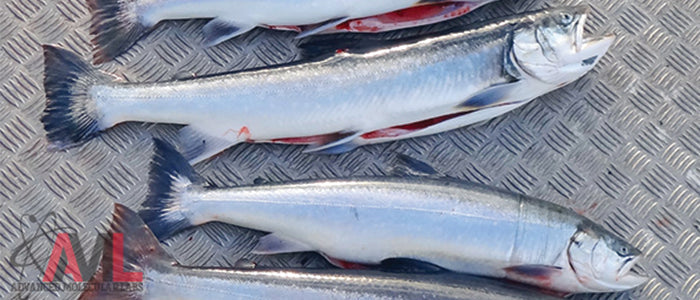


Wild Salmon v Farmed Salmon: Which Is Better for You?
Which Is Healthier - Wild Salmon vs Farmed Salmon?
Salmon is a healthy food because it contains omega-3 fatty acids that protect against heart attack and stroke, promote infant brain development and help ease the symptoms of rheumatoid arthritis, Crohn’s disease, psoriasis and postpartum depression. The benefits of eating salmon are numerous, from its omega 3 benefits to its overall salmon nutritional value. A public health service group called the Environmental Working Group said that farm-raised salmon fillets sampled in three major cities contained unsafe levels of chemicals called PCBs that make their consumption dangerous—particularly in pregnant women. The PCB levels are above those recommended by the United States Environmental Protection Agency (EPA), but within those set by the U.S. Food and Drug Administration (FDA). When considering salmon nutrition facts, healthy fish choices high in omega-3s include wild salmon, sardines, herring and mackerel. Fish high in mercury, another dangerous contaminant, include albacore tuna, swordfish, shark, red snapper and halibut. In late 2015, the FDA approved genetically engineered farmed salmon and will not require specific source labels. Understanding the differences in nutrition and safety between wild salmon v farmed salmon is essential for making informed dietary choices. (ConsumerLab.com, January 3, 2016)



